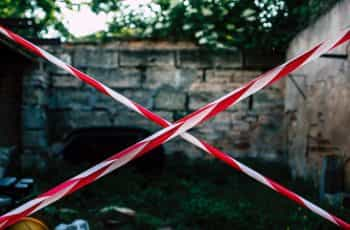Bingo Loses Traction: Should Spain Worry?
With many countries and companies evaluating earnings in 2022 thus far, Spain has its results for bingo, but they are not good. Instead of increasing on previous years, Spain’s bingo sales have decreased again. Even with the declines due to Covid-19 taken into consideration, Spain’s bingo industry must address disappointing results and figure out why the gaming vertical has been so slow to recuperate.

Despite many gaming verticals bouncing back to pre-Covid-19 sales levels, bingo has not recovered in Spain. Ussama Azam/Unsplash
Bingo’s current state in Spain
The Spanish Confederation of Organizations of Entrepreneurs of the Bingo Game — known in Spain as CEJ — recently released its official report on bingo’s current state in the European country. Unfortunately, the news has not been what industry leaders would have hoped for.
The report focused on bingo’s recovery amidst chaos caused by Covid-19. In Spain, like everywhere, concerns over health drove federal and municipal government policies, resulting in the shut down of many businesses. Gaming businesses were affected. Casinos closed their doors, alongside other public “hotspots” where the virus might be spread.
Bingo sales were also negatively impacted during this time. That is because sellers of bingo tickets were also forced to close down or majorly reduce service during the worst periods of the pandemic, namely in 2020 and 2021. This year, 2022 is the first more normal year of operations for all gambling verticals in Spain. That is why it is of interest to key industry players wanting to analyze how various verticals are recovering — or not.
Spain has reported growth in its gross gambling revenue (GGR). Meanwhile, CEJ’s report confirmed that bingo has been recovering more slowly. Though sales figures from 2020 and 2021 have effectively been thrown out due to the unstable nature of the industry at that time, when compared to the same time period in 2019, bingo sales have not met previous levels.
In fact, in comparison to 2019’s figures, sales have decreased by 25%. This is quite unexpected, even in light of the Covid-19 predicament. The current sales figures are 795 million euros for January to August 2022. That is 262.8 million less than the first eight months of 2019.
Furthermore, at the end of 2019, 1.811 billion euros were earned by the industry. In 2022, only 1.371 billion are expected, according to CEJ’s president, Fernando Henar. Henar spoke somewhat vaguely about the reasons for this slow recovery. He stated that Spain’s autonomous communities do not have much in common within their reported statistics, but that nonetheless, they do not forecast good news for the bingo industry.
With rising costs-of-living, squeezed budgets might be contributing to poor sales. It’s also possible that some who previously sold bingo tickets or worked in the industry in other capacities were forced to move on to other lines of work during the pandemic. Regardless, Henar did not sound optimistic when speaking about the recent report.
Conversely, so-called “network electronic bingo” has been a growth point. Its sales have nearly doubled in comparison in 2019. It is available at more than 350 locations throughout Spain and in conjunction with four different software developers, giving fans plenty of options for participating.
Hopefully, the bingo trend is not connected with Spanish player’s tendency to overlook illegal gaming platforms. A study by Jdigital released at the end of August this year showed that 48.2% of players did not know how to check for licensed versus unlicensed gaming sites when participating online. If that trend has affected bingo as well, it’s possible players are using unofficial channels to play, which also would not be tracked by CEJ in their recent report



